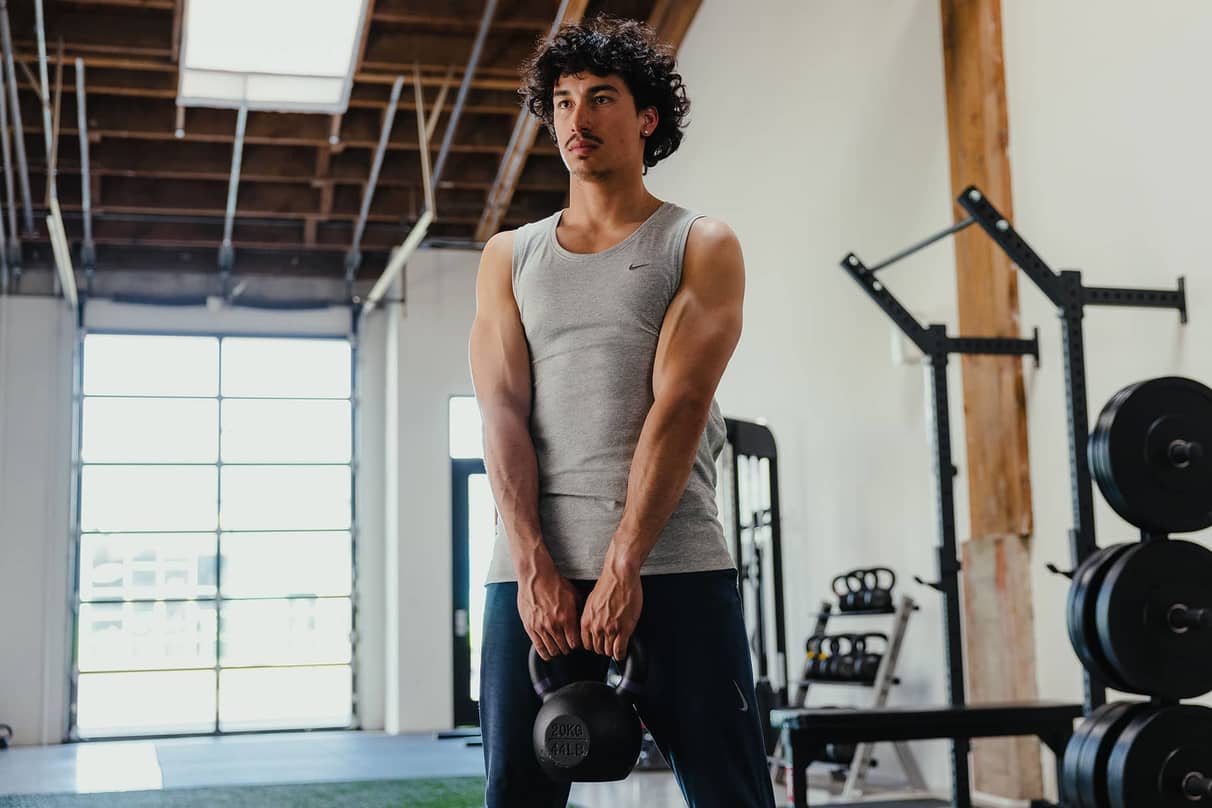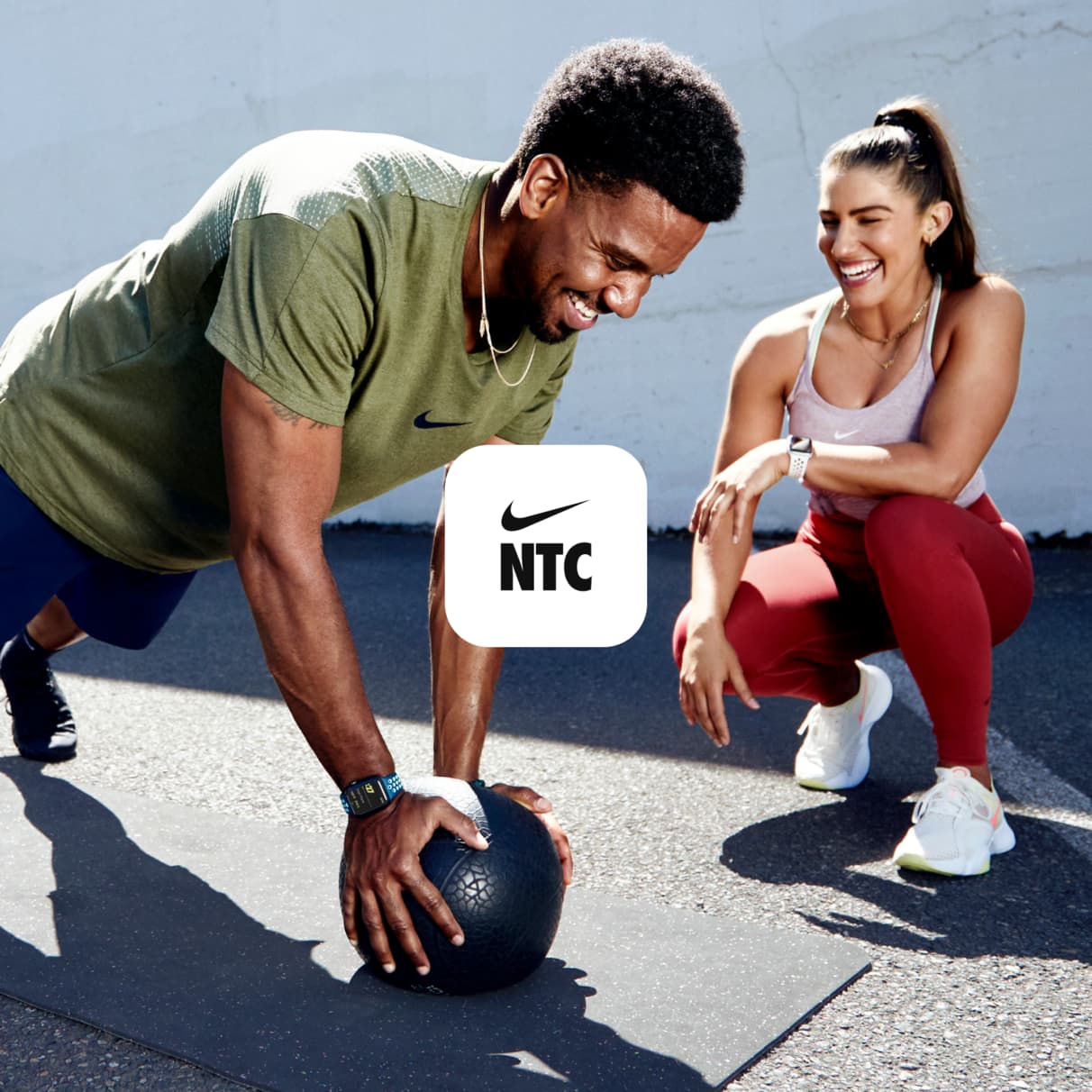Exercises To Strengthen Your Lower Back, According to Experts
Sport & Activity
Physiotherapists share eight moves to support your lower back and explain how to perform them.

When it comes to exercise, one of the core (pun intended) areas to exercise is the lower back. This area is considered the body's stabiliser and consists of muscles that support abdominal strength.
Not to mention, when you don't exercise and move your lower back, those muscles can start to weaken and might lead to lower-back pain. While workout methods like Yoga, Barre and Pilates feature movements that support the lower back, there are also specific exercises to strengthen lower-back muscles in a targeted way that you can try at home or at the gym.
"It's important to strengthen the lower back in order to build a solid foundation for movement", said Kacie Shively, DPT, ACSM-EP "The stronger your lower back is, the less likely you are to get hurt when [you] put it to the test".
Why Strengthening Your Lower Back Matters
The body relies on the lower back for virtually every activity performed throughout the day, so keeping it strong means it can continue to perform everything from small tasks like standing up from a chair, to larger tasks like moving a piece of furniture or carrying shopping up a flight of stairs.
"Sufficient lower-back strength is essential for keeping posture upright while sitting and standing", said Rami Hashish, PhD, DPT. "Poor lower-back strength is one of the primary culprits for poor posture and can lead to compensatory movements and forces to other muscles and joints, ultimately resulting in excessive wear and tear and injury".
Research shows that strengthening the lower back can also contribute to longevity as it "helps your body become more resilient to everyday demands and minimises the risk of developing lower-back pain in the future", said Eni Kadar, DPT, Cert. DN.
The key to optimising lower-back strength? Including exercises in your workout routine that specifically target it, in addition to those that engage your core.
8 Expert-Approved Lower-Back Exercises
Many exercises that are beneficial for the lower back also play a pivotal role in strengthening the abdominal muscles and glutes. And, developing strong core muscles and glutes can ultimately help to protect the back during exercise—from running to doing deadlifts.
"By strengthening the lower back, we are able to optimise our movements with more power and less strain, more evenly disperse force through the upper and lower body and reduce risk of injury", Shively said. "Being mindful of our training to include more lower-back activation and strengthening exercise, even in the warm-up phase of each workout, is crucial to maintaining physical health".
Here are the best exercises for strengthening the lower back, according to Kadar, Hashish and Shively. Cycle through all of these movements for one complete set. For more advanced athletes or for those looking for a bit of a challenge, consider completing 2–3 sets.
1.Superman
This is a modal window.
Sorry, your browser doesn't support embedded videos.Superman exercises are a simple and effective way to strengthen the lower back.
- Start by laying down on your stomach with your arms extended at the front of you—as if you're a flying superhero.
- Using your core muscles, lift your legs and arms around 10 to 15cm off the ground and hold the position for five seconds.
- Slowly lower your arms and legs on a count of three seconds.
- To complete a full set, repeat this 10 times.
2.Bird Dog
This is a modal window.
Sorry, your browser doesn't support embedded videos.Another effective lower-back exercise, the Bird Dog requires you to be in the quadruped position (both hands and knees on the ground) with your back flat and your shoulders over your hands.
- Raise your left arm and right leg until they are level with your back while maintaining a straight back. To do this, drop the right hip so that it remains in line with your left hip, and imagine you are balancing a glass of water on your mid-back.
- Hold for five seconds before slowly lowering your arm and leg back to the ground on a count of three seconds. "Perform this exercise with control, moving slowly from one movement to the next without letting your hips sway side to side", Shively said.
- Repeat this movement on each side with the right arm and left leg for a full sequence. Complete 10 reps.
(Related: Why You Should Add the Bird Dog Exercise to Your Workout Routine, According to Trainers)
3.Glute Bridges
This is a modal window.
Sorry, your browser doesn't support embedded videos.Glute Bridges might target the glutes but, according to Shively, they are also an excellent workout for the back because they strengthen the abdominal muscles, which support the lower back.
- Lie down on your back with your knees bent and feet flat on the floor, slightly wider than shoulder-width apart.
- Your feet should be directly under your knees and your toes should point forwards (which is a slight diagonal since your knees are slightly wider than your shoulders).
- Place your arms down by your side with your palms facing down.
- "Start with squeezing your glutes together, then flatten your lower back and maintain this position when you lift your hips off the ground to create a 'bridge' with your body", Shively said. If you don't feel this in your posterior chain, try digging your heels down into the ground to help further activate the muscles.
- Slowly lower the body back down to your starting position by gently dropping the back, vertebrae by vertebrae, followed by the hips and repeat 10 to 15 times for a full set.
To challenge your strength, Shively recommended holding your Bridge Pose at the top for six seconds before lowering back down.
4.Side Plank
This is a modal window.
Sorry, your browser doesn't support embedded videos.By firing up your core and engaging your balance, Side Planks can strengthen the muscles in the lower back and lead to more abdominal stability over time by strengthening the core muscles. Planks also target the muscles that stabilise the spine, which can not only strengthen them but also prevent lower-back pain.
- "Lie on the left side of your body, with your left arm directly beneath your shoulder, your right leg slightly bent, and your left leg straight with the outside of your left foot on the floor", Hashish said.
- Plank your body by raising up onto your left elbow and foot. If this exercise is a challenge and you wish to work up to a full side plank, try bending the left leg and straightening the right leg while focusing on pulling the abdomen in. For a little more of a challenge, you can lift the right leg, which will further activate the core.
- Then, hold for 20 seconds before repeating on the other side to complete the set.
- For an effective workout, Hashish recommended doing five sets of side planks in total.
5.Anti-rotation Stepping
This is a modal window.
Sorry, your browser doesn't support embedded videos.Anti-rotation Stepping is when you anchor a resistance band in a doorway (or use the handle of a pulley machine at the gym) at waist level, face sideways and hold the bands at the front of you at the midline of your body for a Pallof Press. This exercise helps stabilise the core, which is key to strengthening the lower back.
- Anchor a resistance band in a doorway or on the handle of a pulley machine at waist level as specified above.
- Take two steps out to the side, then two steps back to the starting position for 10 reps.
- Once completed, turn around and repeat on the other side.
- With this exercise, Shively said to always maintain light tension on the band or pulley and to perform two reps per side.
6.Pull-Ups
This is a modal window.
Sorry, your browser doesn't support embedded videos.Hanging onto a pull-up bar alone can help give the back muscles a nice stretch. But, stretching isn't the only thing a pull-up bar is good for—it can also create spinal decompression, which helps improve stability in the lower back.
- Start by facing your palms away from you on the bar and in alignment with your shoulder width.
- "Engage the back muscles by starting the movement at the shoulder blades, pulling them down together and then pulling your body up towards the bar", Shively said.
- She recommended completing four sets of five reps and using either a pull-up bar or an assisted machine at the gym, depending on your skill level.
(Related: How To Start Doing Pull-Ups, According to Experts)
7.Suitcase Carry
This is a modal window.
Sorry, your browser doesn't support embedded videos.The Suitcase Carry consists of holding a kettlebell or dumbbell (or other weighted object) in one hand while walking approximately six to nine metres for one rep.
"This works [the] muscles responsible for stabilising side flexion movements of the lower back and spine", Kadar said.
- While holding a moderate to heavy weight in one hand, engage your core by pulling your abdomen in, then pull back your shoulders, making sure they are level (and you're not leaning to one side—if you find it difficult to maintain squared shoulders, consider using a lighter weight).
- "You'll feel your core and lower back muscles working to keep you upright as the weight pulls you down on one side", Kadar said.
- Walk two laps (one lap is six to nine metres) before switching the weight to your other hand and repeating for a total of four laps.
8.Kettlebell Deadlift
This is a modal window.
Sorry, your browser doesn't support embedded videos.A Kettlebell Deadlift specifically "targets the entire posterior chain, which includes your upper back, lower back, glutes and hamstrings, making it an excellent compound movement", Kadar said. Functional exercises like this are essential to holistic strength and useful to perform daily activities with optimal form—whether you're picking things up or standing up from a chair.
- To complete a Kettlebell Deadlift, stand with your feet shoulder-width apart and a moderately heavy kettlebell placed between your heels.
- To get in starting position, keep your chest up, then slowly push your hips back and bend your knees slightly as you pick up the kettlebell so that you are in a hip hinge, which has less bend in the knee and more tilt from the upper body compared to a squat. Grasp your hands around the kettlebell handle.
- Push through your heels to a standing position.
- Reverse this movement to bring the kettlebell back down to the ground and repeat for eight to 12 reps. If you have tight hamstrings, you can place a short stool or low chair (make sure it's sturdy enough to hold your kettlebell) at the front of you and place the kettlebell on the elevated surface to avoid rounding the lower back or dropping the kettlebell when you get to your lowest point.
(Related: Everything You Need to Know About Kettlebell Swings)
Something To Bear in Mind
If you experience lower-back pain generally, it's important to be evaluated by a medical professional before incorporating these strengthening exercises into your workout routine. Doing so will help determine the cause of your pain and help create a plan of action for addressing the concerns.
Words by Jessie Quinn
























